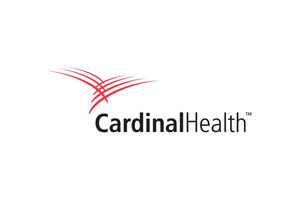Cardinal Health Extends Radiopharmaceutical Manufacturing Network, Opening its First Cyclotron in Georgia
Company Makes Molecular Imaging Technology More Accessible to Local Physicians, Patients
AUGUSTA, Ga., June 14, 2011 /PRNewswire/ -- Cardinal Health today opened its first cyclotron facility in the state of Georgia, further expanding its nationwide capability to manufacture molecular imaging biomarkers that aid in the early diagnosis, monitoring and treatment of cancer, neurological disorders and heart disease.
Cyclotrons are critical to the manufacturing process for Positron Emission Tomography (PET) molecular imaging agents, one of the fastest-growing areas of nuclear medicine. When injected into the body, these specialized radiopharmaceuticals, called biomarkers, detect and trace abnormal cellular functions that are associated with a variety of diseases. Visible using sophisticated imaging scanners, these biomarkers make it easier for physicians to non-invasively diagnose critical, life-threatening diseases in their earliest stages. They can also improve physicians' ability to track the effectiveness of patient treatment plans.
Cardinal Health's Augusta cyclotron facility will be located nearby its existing nuclear pharmacy in Augusta, where the company will dispense PET imaging agents in patient-specific doses. Cardinal Health now operates a nationwide network of 36 cyclotrons, with its Charlotte, N.C. cyclotron being the closest to Augusta.
"The introduction of our newest cyclotron in Augusta underscores Cardinal Health's commitment to making molecular imaging more accessible to physicians and patients in Georgia and throughout the United States," said John Rademacher, president of Cardinal Health's Nuclear Pharmacy Services business. "This innovative technology is an important tool in improving the quality and cost-efficiency of health care, because it helps physicians save lives by enabling them to detect serious illnesses and determine the effectiveness of related treatment plans."
The new cyclotron will also support molecular imaging research in nearby hospitals and universities, and will be available to support clinical trials that evaluate the effectiveness of new PET imaging agents.
Cardinal Health's Nuclear Pharmacy Services business operates the nation's largest network of radiopharmacies. The company has strategically located its nationwide network of cyclotrons to enable nearly 100 of its 160 radiopharmacies to compound and dispense high-energy PET imaging agents in unit-dose form. The company's vast network of "PET-enabled" pharmacies, combined with its broad nuclear pharmacy scale, comprehensive fleet and logistics capabilities enable it to play a critical role in supporting clinical trials of both proprietary and non-proprietary imaging agents.
About Cardinal Health
Headquartered in Dublin, Ohio, Cardinal Health, Inc. (NYSE: CAH) is a $99 billion health care services company that improves the cost-effectiveness of health care. As the business behind health care, Cardinal Health helps pharmacies, hospitals, ambulatory surgery centers and physician offices focus on patient care while reducing costs, enhancing efficiency and improving quality. Cardinal Health is an essential link in the health care supply chain, providing pharmaceuticals and medical products to more than 60,000 locations each day. The company is also a leading manufacturer of medical and surgical products, including gloves, surgical apparel and fluid management products. In addition, the company supports the growing diagnostic industry by supplying medical products to clinical laboratories and operating the nation's largest network of radiopharmacies that dispense products to aid in the early diagnosis and treatment of disease. Ranked #19 on the Fortune 500, Cardinal Health employs more than 30,000 people worldwide. More information about the company may be found at cardinalhealth.com and @CardinalHealth on Twitter.
SOURCE Cardinal Health
WANT YOUR COMPANY'S NEWS FEATURED ON PRNEWSWIRE.COM?
Newsrooms &
Influencers
Digital Media
Outlets
Journalists
Opted In





Share this article